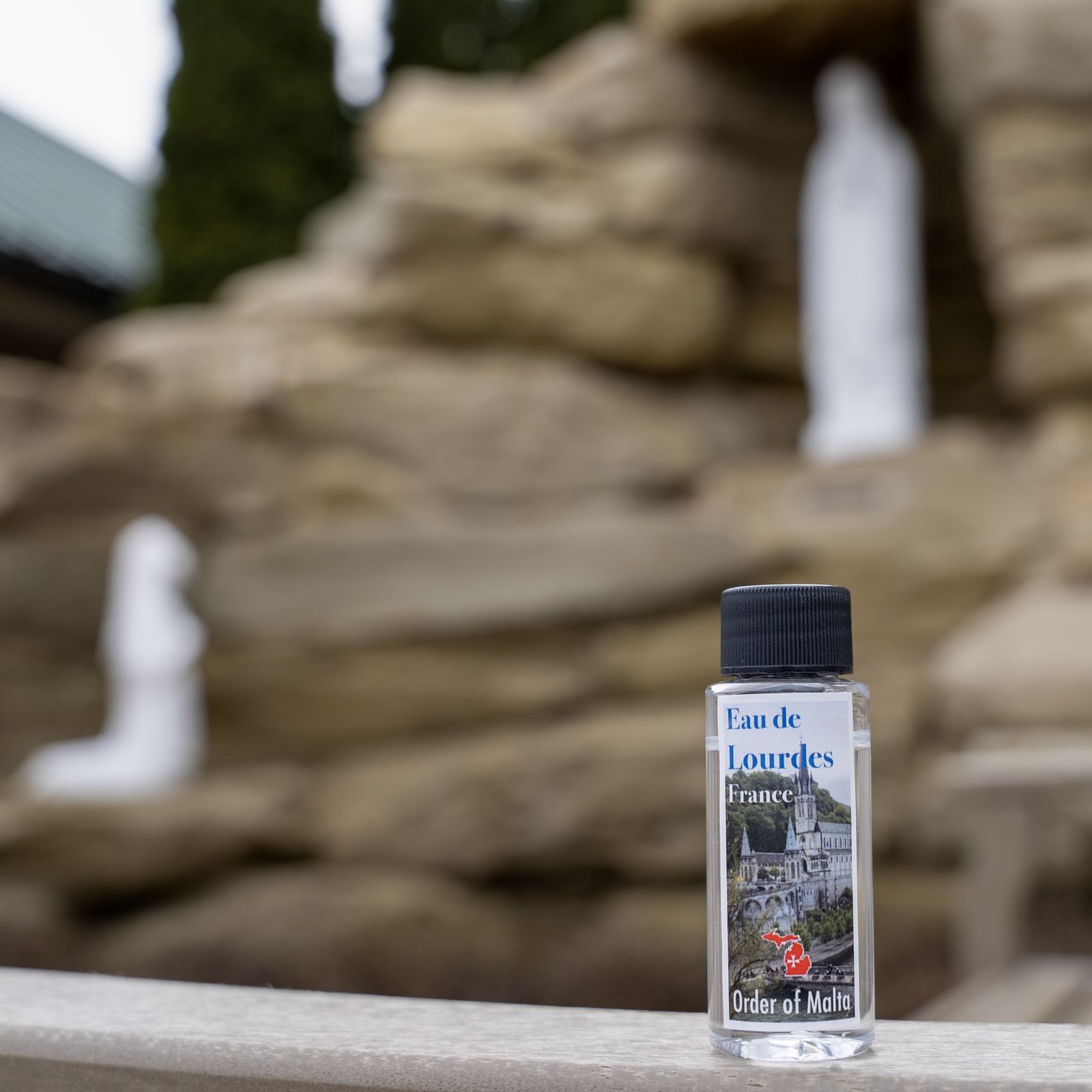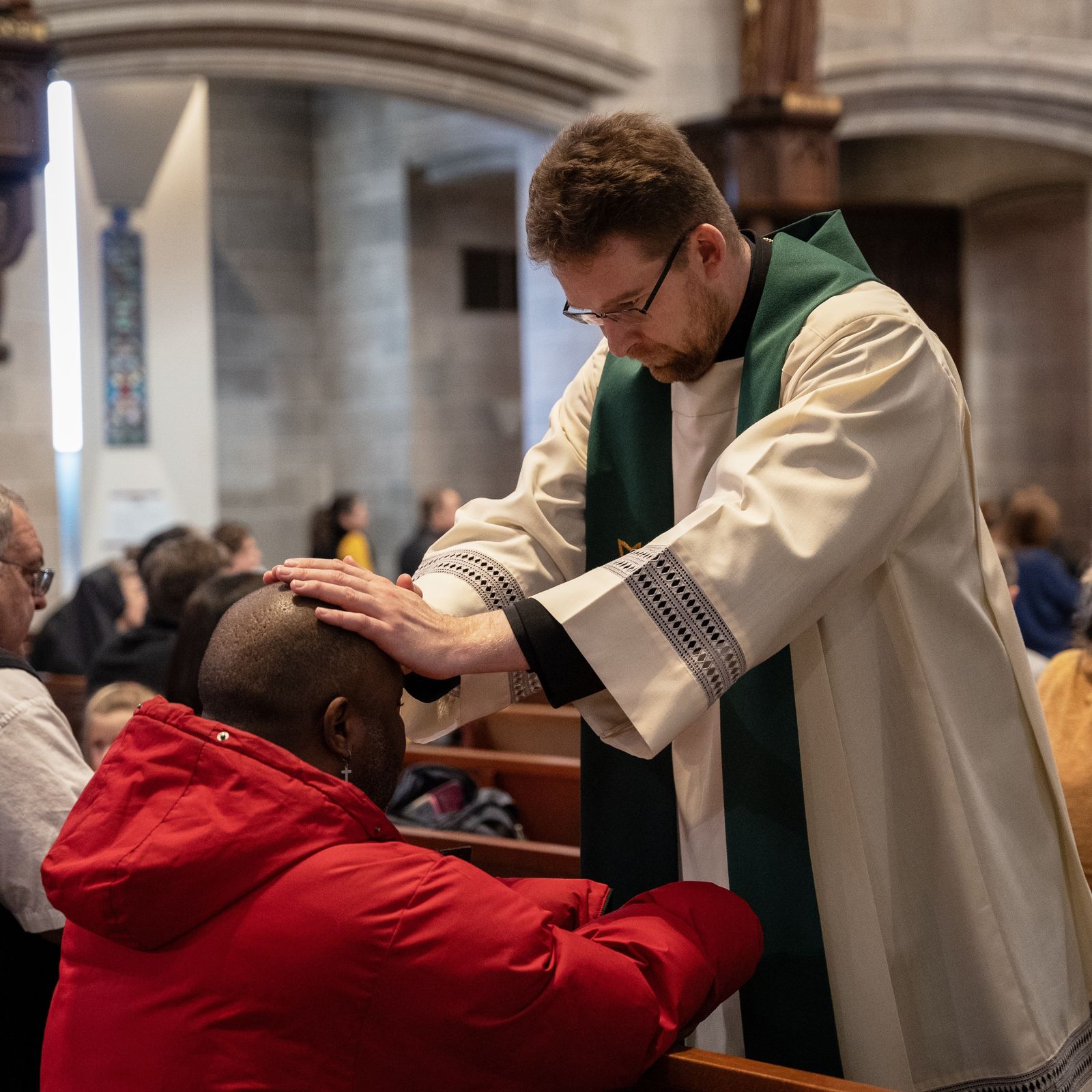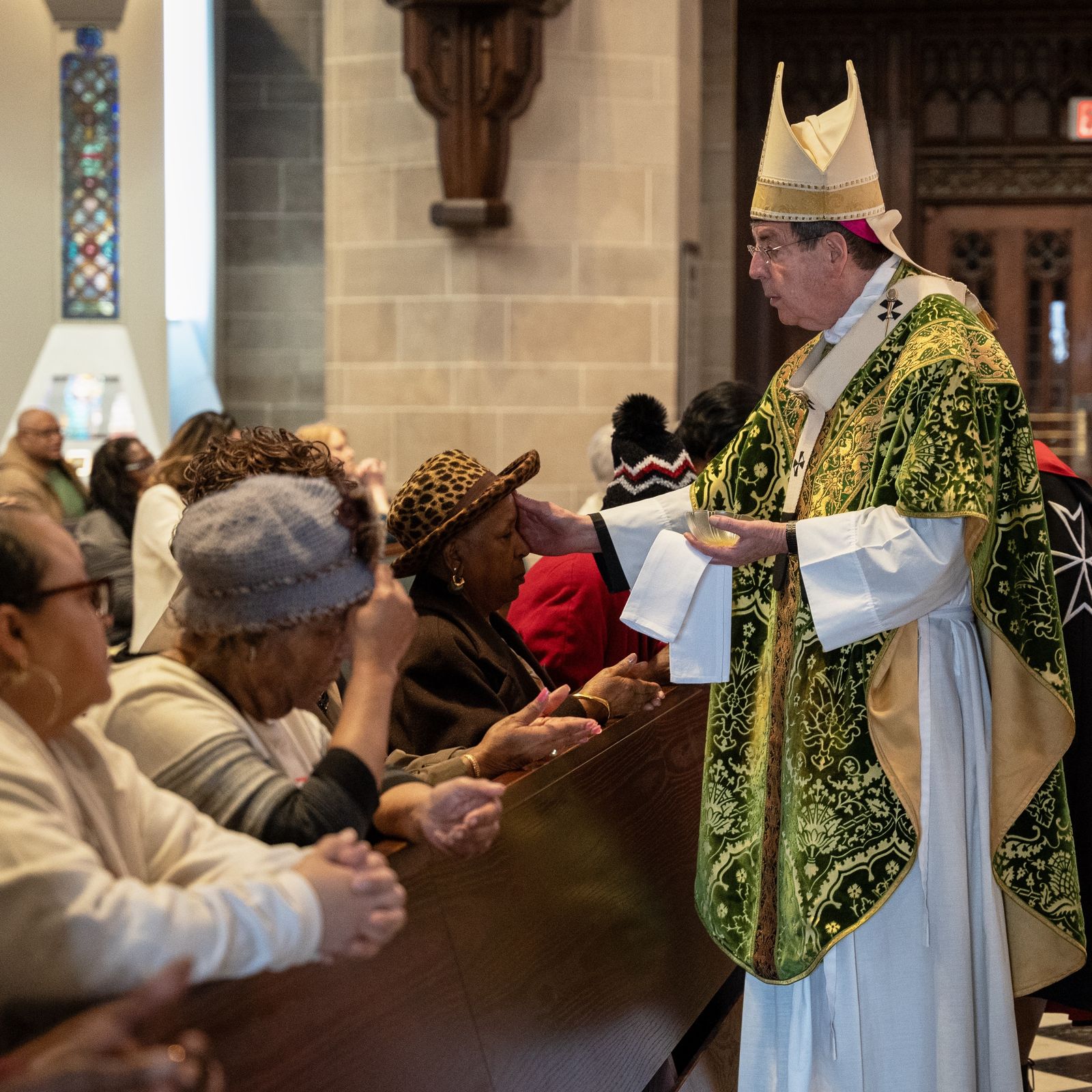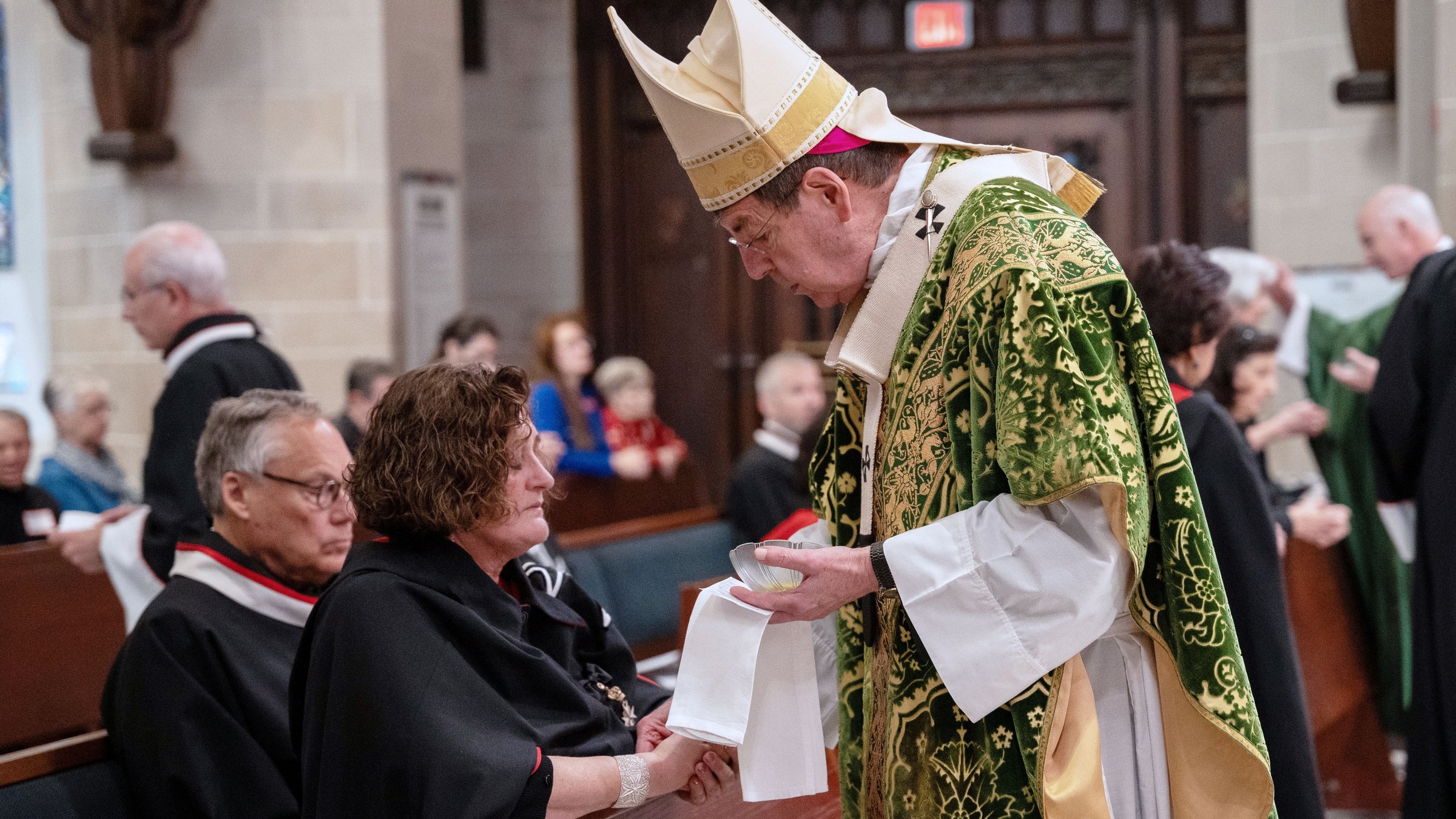World Day of the Sick reminds those who are struggling that they belong to God, and are valuable members of the community
DETROIT — Shortly before making his way through the pews of the Cathedral of the Blessed Sacrament on Feb. 11, Archbishop Allen H. Vigneron addressed the sick, suffering and maligned gathered inside Detroit's mother church.
His message was as succinct as it was profound: the Church sees you.
Don't miss another story
Did you know you can get Detroit Catholic's latest daily or weekly articles delivered to your inbox? It's easy and free to sign up.
“In our society, there is a tendency to make those who are sick anonymous and to put them in a special place where they can be cared for, but nobody has to pay attention to them,” Archbishop Vigneron said. “But by the anointing of the sick and the power of the grace of Jesus, especially in this communal context, the sick are not isolated, but you belong to us — this is where you belong. You, in our midst, cared for us by us.”
Sickness offered alongside the suffering of Christ makes the community richer, Archbishop Vigneron told those gathered, who included individuals with illnesses, their families and caregivers and members of the Order of Malta, whose primary charism is ministering to the sick.
Archbishop Vigneron led the anointing of the sick during the Archdiocese of Detroit's annual Mass for the World Day of the Sick, a celebration that takes place around the feast of Our Lady of Lourdes, who appeared to St. Bernadette Soubirous in 1858. A Sanctuary of Our Lady of Lourdes is built on the site of these apparitions in southern France and is also the site of a spring of water said to have “miraculous healing properties.”

During the COVID-19 pandemic, Archbishop Vigneron pledged to build a grotto to Our Lady of Lourdes at the cathedral, a project that is nearly completed and will be dedicated on May 12.
The international Order of Malta, whose members accompany malades — the French word for “sick person” — on an annual pilgrimage to Lourdes, served as ushers during the Mass and assisted the archbishop and several other priests during the anointing of the sick. Members of the order also made and distributed vials of holy water from the Lourdes spring to members of the congregation.
The anointing of the sick is one of the sacraments of healing, alongside reconciliation, said Deacon Chris Beltowski, who assisted at the Mass. Evidence of the sacraments of healing can be found in the letter of James in the New Testament, he said.
“In his letter, James says if you are sick, you are to call on the presbyters to actually come and pray on you and anoint you with oil,” Deacon Beltowski told Detroit Catholic. “You are praying to be healed, but you are not just being healed physically, but perhaps more importantly, you are being healed spiritually.”

Anyone can receive the anointing of the sick, and there is no limit to how many times a person can receive the sacrament in a lifetime, Deacon Beltowski said. While traditionally, it has been administered on deathbeds, many seek the sacrament for different reasons, such as prior to surgery, before leaving for the military, or for mental illness.
“There is power in Jesus to heal us or to restore us back in one way or another," Deacon Beltowski said. "It doesn’t necessarily have to heal us of what’s taking place in this world, but our hope is that we are receiving grace that continues to pull us toward heaven.”
Mary Danaj, a parishioner at St. Clement of Rome in Romeo, said this was her third time receiving the anointing of the sick.
“My illnesses are just ‘everyday illnesses’ like arthritis, but I get a sense of peace,” Danaj said. “It’s an emotional experience when the priest lays his hands on you. Last year, Archbishop Vigneron did my blessing, and there is something that comes over you that is really powerful — it makes you feel at peace like it’s going to be OK.”
In his homily, Archbishop Vigneron said that through the Lord’s providence, the Gospel reading for the day proclaimed the story of Jesus healing the leper. In the passage, Jesus healed not only the man's physical ailments, but also restored him spiritually.

Lepers were cast out of society, Archbishop Vigneron explained. They could not enter into community with others and could not come into the synagogue and share in the heritage of Abraham and Moses. By touching and healing the leper, Jesus not only reversed the man’s condemnation, but made him pure.
“Jesus made the man well, but perhaps more significantly, he restored this man to the society of his family and friends and to the worshiping community,” Archbishop Vigneron said. “He could go into the temple, and he could praise God the way the children of Abraham were called upon to worship and praise.”
This Gospel miracle can help the Church understand what Christ accomplishes through the anointing of the sick, Archbishop Vigneron said.
“In this expression of his compassionate care for those who are ill, it is about healing to the extent that the sick need it, but above all, it is about giving strength for bearing the cross, and the anointing confirms that you who are sick are part of our community.”
Copy Permalink
Hope and healing












